Before she can finish, another voice interrupts them on the phone, and at that moment the dog, startled by something at the door, jumps off the bed, tangling its foot in the phone cord, pulling the whole thing down and disconnecting the call. Haydn puts the phone to his ear, but it’s dead.
The lamp on the bed stand suddenly seems too bright, like 200- or 300-watt bright. He reaches over and turns off the light. The dog barks wildly at the door, showing more life than Haydn can imagine, the hair on its back standing up.
He knows that he will never call her again, and that he shouldn’t have even tried, and that it’s time to let the dog go. He leans over and puts the phone back on the table, gets out of bed, and walks across the room to open the door. Haydn, in his Detroit Tigers shirt, lets the dog out. It’s easy to let it go.
Haydn stands in the doorway and looks out into the black night, trying to see something, anything, even a light. Yet there is nothing but blackness. The air must feel sweet in his lungs. His car has got to be out there somewhere in the parking lot that he cannot see. In fact it is so quiet, so still, that looking into the blank night, Haydn can almost imagine that the world itself had disappeared, or has never existed.
What happened to you , she had said.
He wants to answer her now, but it’s too late.
As he steps away from his room, what he has come to fear and secretly hope for is finally and actually there before him in its darkness, darker even than the gathered night.
The Insurgent (a film treatment, 1968)
Gutman (2001)
IT’S LATE, AND LAING STANDS UP FROM THE TABLE and stretches his arms above his head, grasping a wrist.
“Have I disappointed you?” he asks.
“Whatever they bind, shall be bound,” I say.
“And so would you have me broken by sorrow?”
“It’s not just word games, you know. What is it that you want?”
“You’re the one who came to find me ,” Laing says.
“ Ego te absolvo .”
“For what?”
“You tell me, Roberto. That’s your role.”
“Complete and utter destruction.”
“Of what?”
“Of them,” Laing says.
“Them? The films, or…”
“It’s a funny thing that you’ve come all the way out here to ask me to talk about these films. If this was a movie it would be the point where I begin to let you know that I know why you’re really here.”
“Then I’m afraid I’m the one who’s disappointed you. I’m only here for the films. You and the films.”
“Me and the films and…?”
“Are you asking because you know or you think you know?”
It’s hard to explain how or why, but this whole exchange feels rehearsed, though that’s not really the right word. Uncanny? That’s getting closer. Reconstructed? Closer still. Close enough. That’s also when I notice a HAVE YOU SEEN ME flyer, on the floor by the throne-chair with the VHS tapes, for one of the missing children, a girl with yellow pigtails and a pink turtleneck. A school picture. Last seen wearing… If you have any information…
*
The problem with The Insurgent , as Laing told me before handing it over to me, was that it had been deemed too philosophical, too abstract by the studio heads, the money men, at Paramount. It would have been Antonioni’s second American film, after Zabriskie Point (1970). In fact, he wrote the treatment (probably with others, though only his name appears on the document) during the initial months of shooting Zabriskie Point in Los Angeles in 1968, during an era when he spoke frequently and ominously about the fact that we, as human beings, must become reconciled to nature, and that this reconciliation would necessarily involve great violence. Antonioni had found it difficult to adapt to life in California, and, he said in several interviews given during that time, admired the anarchic spirit of the counter-culture while loathing the hippies’ need for gurus and mystics. All this while wearing a heavily starched white shirt and black tie, smoking imported cigarettes and using the phrase “the Southern Strategy” years before it entered the lexicon.
The treatment for The Insurgent is typed on thick cream paper. I reproduce it here, as Laing gave it to me, without alteration:
THE INSURGENT
By A.A., ’68
Evie has been assigned to repair (to poison, but she doesn’t know this yet) the well, in an obscure area of the State. The notice came, like it always did, in the curiously old-fashioned form of a note in a sealed envelope beneath her apartment door. It was there in the morning, a simple folded slip of paper in the envelope with the coordinates, a time-line, an all-zones passport, a contact number, the familiar list of instructions, and a credit card. If this sounds mysterious and romantic, the stuff of spy novels, then consider that Evie was a mere field engineer, a repairer of structures, a tuner of sounds, part laborer, part designer, part theorist.
The theorist part, that’s what would get her into trouble at the end.
She understands that the job will take her to the furthest edges of the State, where the well hardly seems to matter. She checks the coordinates again and spreads out the map on the floor, tracing in blue pencil a line from where she is now to the place she’s going. Not quite as far as she thought, but still a week’s journey, at least.
She goes back to the envelope, and only then notices that there are two passports, not one. The first one has her name and photo. The second contains an unfamiliar face and photo, someone whose name is Farris. She looks at the instructions again, typed on a white index card. The instructions are the same as always, with the exception of a new directive, typed at the bottom of the card in a font that appeared to be from a different typewriter than the rest. It reads: Join with Farris at mile 9 and continue to destination together.
That night, Evie has a terrible dream. In it, she stands before a vast oil painting in what might have been a museum, a painting that’s so large that she can’t stand far enough away to take it all in. The room is cold and quiet, except for a noise that seems to come from the painting itself, from a small human figure lost in the orange and red oils, and the figure requires that she stand very close to the painting to see it, so close that she can smell the linseed oil, and on the horizon of what appears to be a vast desert is the human figure, on a horse, and the noise it emits from the painting is faint, like the buzzing of a bee, and she becomes dizzy and loses the horizon line and her perspective and in that instant realizes that the voice she heard in the painting is that of her lost sister Kate, crying out to her from the depths of the painting, not even from a photograph, which represented something real at least, but from a painting, so that she was abstract, nothing more than a brushstroke on a canvas, and yet a moving brushstroke, moving slowly across the painting from left to right, as if the artist was not yet finished, waiting for Evie to put her ear to the painting to hear her sister’s scream, her mouth spewing red paint.
*
The walk to mile 9 is familiar. Through the outskirts of the largely abandoned village, down into the valley, due west, until the remnants of the old city come into view, its cracked cobblestones, the toppled First Presbyterian church spire still dangling from the structure, its upside down cross like some alien warning symbol, the granite-faced library with its smashed-in windows, and then, in the distance to the east, across the river that divided the city, the smoke from the camp settlements.
Читать дальше
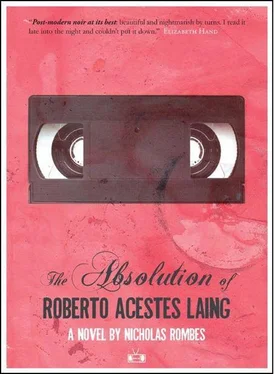
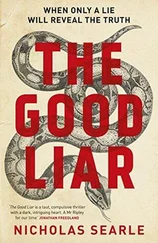
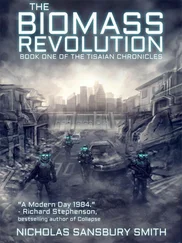



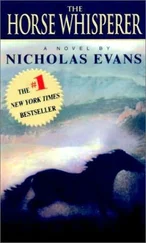
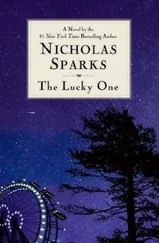




![Nicholas Timmins - The Five Giants [New Edition] - A Biography of the Welfare State](/books/701739/nicholas-timmins-the-five-giants-new-edition-a-thumb.webp)